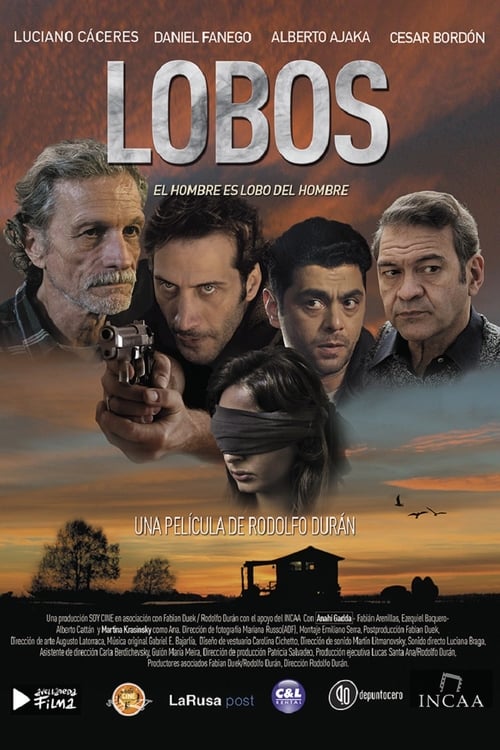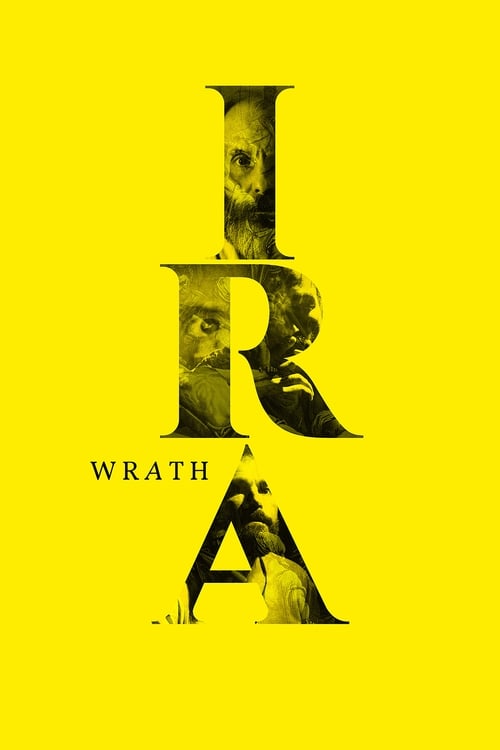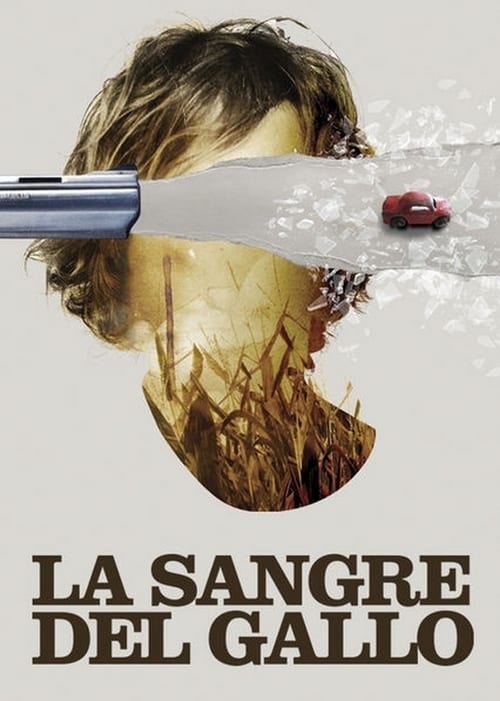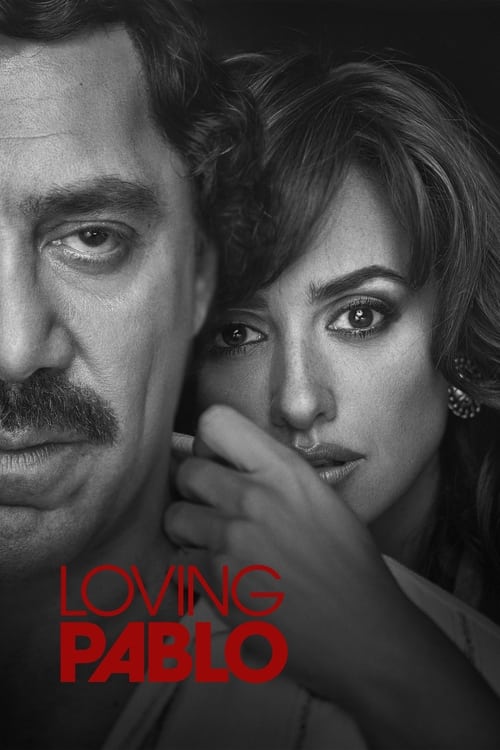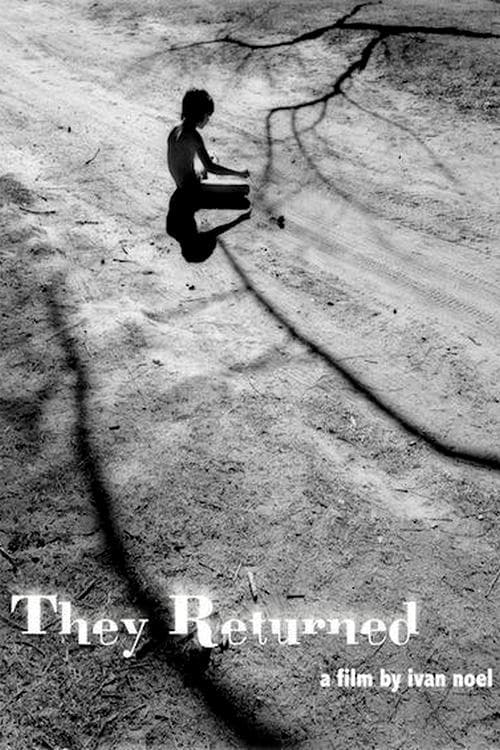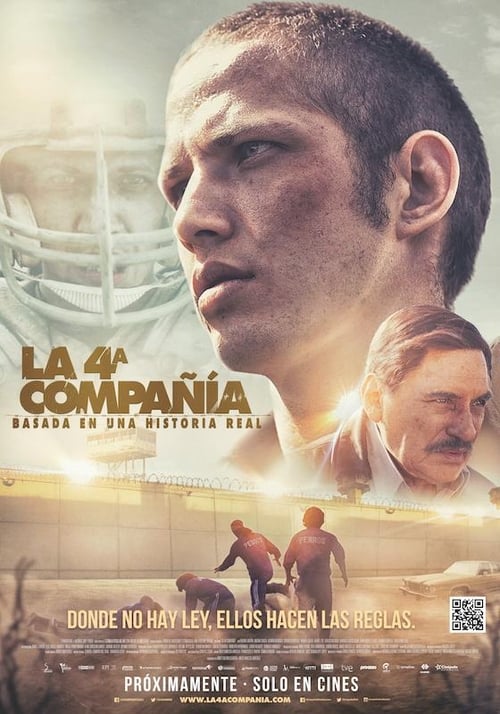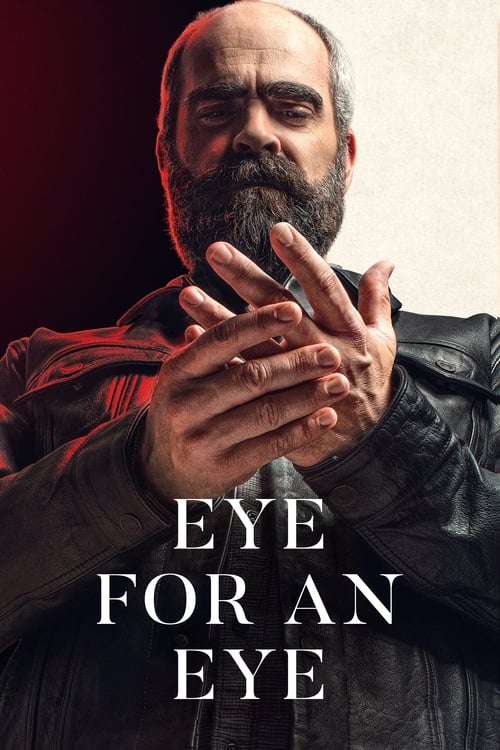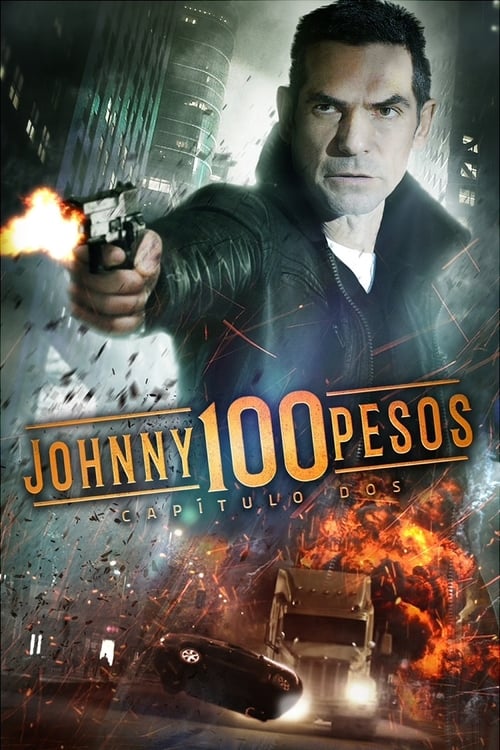
Ask Your Own Question
What is the plot?
The wind howls across the Patagonian plateau, snow swirling in thick, blinding sheets as a search party trudges through the frozen wilderness. It is 2004, and the year is etched in the memory of every local: a group of high school students, including Cornelia Villalba and Manuela "Pipa" Pelari, had come to the region for a field trip. Cornelia, a vibrant, rebellious girl with a restless spirit, sneaks away with her friends to dance at a remote party in the woods. The night turns cold, the music fades, and Cornelia vanishes into the darkness. The search is frantic, desperate, but yields nothing. The last image anyone sees is Cornelia's silhouette disappearing into the trees, her laughter swallowed by the wind. Fourteen years pass, and the mystery of her disappearance remains unsolved.
Now, in 2018, Manuela Pelari is no longer the frightened girl from that night. She is a hardened police officer, a specialist in human trafficking cases, her life defined by the loss of her best friend. Her days are spent tracking down traffickers, rescuing victims, and burying the past beneath layers of duty and violence. She is tough, solitary, haunted by the memory of Cornelia, and driven by a guilt that never sleeps. One evening, she attends a memorial mass for Cornelia at the local church. The air is thick with grief, the candles flicker, and the priest speaks of lost innocence. As Manuela kneels, a photograph is placed on the altar--a snapshot of Cornelia as she was that night, smiling, alive. No one knows who left it. Then, a series of obituaries begin appearing in the local paper, each one a tribute to Cornelia, each one signed with a cryptic phrase: "She is not gone, only lost."
Cornelia's mother, Clara Villalba, approaches Manuela after the service, her eyes red with tears. "You were her best friend," she says, her voice trembling. "You have to find out what happened. You have to bring her back." Manuela hesitates, the weight of the past pressing down on her, but she cannot refuse. She reopens the case, despite the objections of her superior, Commissioner Ramiro Vargas, who warns her that some wounds are better left unhealed. "This is not just a missing person's case," he says. "It's a ghost. And ghosts don't answer."
Manuela begins her investigation, retracing the steps of that fateful night. She interviews the surviving classmates, but their memories are hazy, their stories rehearsed. "Cornelia got lost," one says. "A puma ate her. She died." They have moved on, buried the past, but Manuela cannot. She digs deeper, uncovering inconsistencies in the official reports, gaps in the timeline, and whispers of something darker beneath the surface. She enlists the help of her hacker friend, Lucía "Lu" Sánchez (Oriana Sabatini), a young woman with a sharp mind and a troubled past, who hacks into old police files and uncovers a series of unexplained disappearances in the region, all linked to the same time period.
As Manuela follows the trail, she begins to notice a pattern: the missing girls were all young, all from poor families, all with no powerful connections. She discovers that Cornelia was not the only one who vanished that night. Another girl, a local named Sofía, disappeared from a nearby village, and her case was quietly buried. Manuela's instincts tell her that these disappearances are connected, that something far more sinister is at play.
Her investigation leads her to a remote banana plantation in the Canary Islands, where she uncovers a network of human trafficking. The plantation is a front for a criminal ring that smuggles girls across borders, selling them into forced labor and prostitution. Manuela infiltrates the operation, posing as a buyer, and witnesses the horrors firsthand: girls locked in cages, beaten, drugged, their spirits broken. One girl, a defiant woman with a mermaid tattoo on her arm, pleads for her life. "I have a daughter," she says, her voice raw with desperation. "Please, don't bury me here." Manuela intervenes, rescuing the girl and dismantling the operation, but the experience leaves her shaken. She realizes that Cornelia may have been a victim of this ring, that her disappearance was not an accident, but a crime.
Back in Argentina, Manuela's search intensifies. She discovers that the trafficking ring is controlled by a shadowy figure known only as "The Egyptian" (Pedro Casablanc), a ruthless criminal who operates from the shadows, his identity hidden behind layers of secrecy. The Egyptian's enforcers are a feral woman named Lucía (Amaia Salamanca) and a brutish man named Diego (Carlos Alcántara), both of whom are deeply loyal to their master. Manuela tracks them to a secluded compound in the Patagonian mountains, where she confronts them in a tense, violent showdown.
The confrontation is brutal. Manuela fights Lucía and Diego with everything she has, her training and her rage driving her forward. Lucía is wild, unpredictable, her movements animalistic, while Diego is a brute, relying on sheer strength. Manuela manages to subdue Diego, but Lucía escapes into the night, vanishing into the forest. Manuela captures Diego and interrogates him, demanding to know the truth about Cornelia. "She's dead," Diego sneers. "The Egyptian killed her. She tried to escape, and he made an example of her." Manuela is devastated, but she presses on, determined to bring The Egyptian to justice.
She follows the trail to Buenos Aires, where she discovers that The Egyptian is not just a criminal, but a powerful businessman with ties to the government and the police. His real name is Raúl Mendoza, a wealthy entrepreneur who uses his influence to cover his crimes. Manuela confronts him in his office, a sleek, modern space filled with art and luxury. "You think you can stop me?" Mendoza says, his voice calm, almost amused. "You're just a pawn in a much larger game. Cornelia was nothing to me. She was a lesson, a warning to others who might try to defy me."
Manuela refuses to back down. She presents the evidence she has gathered, the testimonies of the rescued girls, the records of the trafficking ring. Mendoza laughs, dismissing her efforts. "You have no proof," he says. "And even if you did, who would believe you? The system is mine. I own the police, the courts, the media. You are alone."
But Manuela is not alone. She has the support of Lucía Sánchez, who has hacked into Mendoza's private files, uncovering a trove of incriminating evidence. She also has the loyalty of Commissioner Vargas, who, despite his earlier warnings, recognizes the truth and agrees to help her bring Mendoza down. Together, they launch a coordinated operation, raiding Mendoza's properties, arresting his associates, and dismantling his empire.
The climax takes place in the Patagonian mountains, where Manuela tracks Mendoza to a remote cabin. The snow is falling heavily, the wind howling, as she confronts him in a final, desperate battle. Mendoza is armed, desperate, willing to kill to protect his secrets. Manuela fights him with everything she has, her training and her rage driving her forward. The fight is brutal, both of them wounded, both of them determined to win. In the end, Manuela prevails, disarming Mendoza and forcing him to confess.
"You killed Cornelia," she says, her voice cold, her eyes burning with fury. "You killed her, and you made her disappear. But you can't hide from the truth. You can't bury the past."
Mendoza laughs, a bitter, broken sound. "The past is gone," he says. "Cornelia is gone. You can't bring her back. You can't change what happened."
Manuela looks at him, her heart heavy with grief and anger. "No," she says. "I can't bring her back. But I can make sure you pay for what you did. I can make sure the world knows the truth."
She arrests Mendoza and brings him to justice. The evidence is overwhelming, the testimonies undeniable. Mendoza is convicted and sentenced to life in prison, his empire destroyed, his secrets exposed. Manuela returns to the church, where she places a photograph of Cornelia on the altar, a final tribute to her lost friend. The candles flicker, the wind whispers through the trees, and Manuela feels a sense of closure, a peace she has not known in years.
But the story is not over. As Manuela leaves the church, she receives a message from Lucía Sánchez. "I found something," the message says. "Something about Cornelia. Meet me at the old cabin."
Manuela returns to the cabin, where Lucía shows her a hidden compartment in the wall. Inside is a journal, Cornelia's journal, filled with her thoughts, her dreams, her fears. Manuela reads the entries, tears streaming down her face, as she learns the truth about her friend's final days. Cornelia had discovered the trafficking ring, had tried to expose it, and had been captured and killed by Mendoza. But before she died, she had hidden the journal, hoping that someone would find it, that the truth would be revealed.
Manuela closes the journal, her heart heavy with grief and pride. She knows that Cornelia's spirit lives on, that her courage and her sacrifice have not been in vain. She leaves the cabin, the snow falling around her, and walks into the future, carrying the memory of her friend with her.
The film ends with Manuela standing on a hill overlooking the Patagonian plateau, the wind in her hair, the sky clear and bright. She looks out at the horizon, a sense of peace and purpose in her eyes. The past is gone, but the future is hers. She has found the truth, she has brought justice, and she has honored the memory of her lost friend. The wind whispers through the trees, and Manuela smiles, knowing that Cornelia is not lost, only remembered.
What is the ending?
In the ending of "Perdida," the protagonist, a police officer named Pipa, confronts the truth about her past and the disappearance of her childhood friend, Luciana. After a series of intense revelations and confrontations, Pipa uncovers the dark secrets surrounding Luciana's fate. The film concludes with Pipa coming to terms with her own trauma and the impact of the events on her life, while also seeking justice for Luciana.
As the climax of "Perdida" unfolds, Pipa, portrayed by Luisana Lopilato, finds herself in a tense standoff with the antagonist, who has been revealed to be deeply connected to the mystery of Luciana's disappearance. The scene is set in a dimly lit warehouse, where shadows dance ominously across the walls, reflecting the weight of the secrets that have been buried for years. Pipa's heart races as she confronts the man who has evaded justice for so long, her determination fueled by the memories of her lost friend.
In this moment, Pipa's internal struggle is palpable. She grapples with feelings of guilt and anger, knowing that her pursuit of the truth has put her in danger. The air is thick with tension as she demands answers, her voice steady despite the fear coursing through her veins. The antagonist, a figure shrouded in darkness, taunts her, revealing the extent of his involvement in Luciana's fate. Pipa's resolve hardens; she is not just fighting for justice but also for her own redemption.
As the confrontation escalates, Pipa's colleagues arrive, having tracked her down. The scene shifts to a chaotic exchange of gunfire, with Pipa dodging bullets and maneuvering through the warehouse. The cinematography captures the frantic energy of the moment, with quick cuts and close-ups that emphasize the stakes at hand. Pipa's determination shines through as she navigates the perilous situation, her instincts as a police officer kicking in.
In a pivotal moment, Pipa manages to subdue the antagonist, but not without sustaining injuries herself. As she stands over him, breathing heavily, the weight of her journey crashes down on her. The camera lingers on her face, capturing the mix of relief and sorrow. She has uncovered the truth, but it comes at a great cost. The emotional toll of the past weighs heavily on her, and the scars of her childhood are laid bare.
The film concludes with Pipa visiting Luciana's family, where she shares the truth about what happened. The scene is filled with raw emotion as Luciana's parents grapple with their loss, and Pipa offers them a sense of closure. The camera captures the tears in their eyes, the unspoken bond of shared grief. Pipa's journey has not only been about solving a mystery but also about healing the wounds of the past.
In the final moments, Pipa stands alone, looking out over the city. The sun sets in the background, casting a warm glow that contrasts with the darkness she has faced. She reflects on her journey, the friends she has lost, and the justice she has fought for. The film closes on her determined expression, hinting at her commitment to continue seeking justice for those who cannot speak for themselves.
In summary, the fates of the main characters are intertwined with the themes of loss, justice, and redemption. Pipa emerges as a stronger individual, having faced her demons and sought the truth, while the antagonist is brought to justice, albeit after a harrowing confrontation. Luciana's family is left with the painful truth, but also a sense of closure that had eluded them for so long. The ending encapsulates the emotional weight of the narrative, leaving the audience with a lingering sense of hope amidst the darkness.
Is there a post-credit scene?
In the movie "Perdida," produced in 2018, there is no post-credit scene. The film concludes its narrative without any additional scenes or content after the credits roll. The story wraps up with a focus on the resolution of the main plot, leaving the audience with a sense of closure regarding the characters and their journeys.
What role does the character of the journalist play in the story?
The journalist serves as both an ally and a source of tension for Leila. Initially, he provides valuable information and insights that aid in the investigation, but his own motives and the media's sensationalism complicate the search, forcing Leila to navigate trust issues while trying to uncover the truth.
What motivates the main character, detective Leila, to search for her missing friend?
Detective Leila is deeply motivated by her personal connection to her missing friend, who is not just a colleague but also someone she cares about deeply. The emotional weight of their friendship drives her to go beyond her professional duties, as she feels a sense of responsibility and guilt for not being able to protect her.
How does Leila's past influence her investigation into the disappearance?
Leila's past is marked by trauma and loss, particularly related to her own sister's disappearance years earlier. This unresolved pain fuels her determination to find her friend, as she is haunted by the fear of repeating history and failing to save someone she loves.
What are the key obstacles Leila faces during her investigation?
Leila encounters several obstacles, including bureaucratic red tape, the reluctance of witnesses to come forward, and her own emotional turmoil. Additionally, she faces pushback from her superiors who are skeptical of her methods, as well as the danger posed by those who may be involved in her friend's disappearance.
How does the relationship between Leila and her partner evolve throughout the film?
Leila's relationship with her partner begins with a professional distance, as he is more focused on protocol and procedure. However, as they delve deeper into the investigation, they develop a bond built on shared experiences and mutual support, ultimately leading to a deeper understanding of each other's motivations and vulnerabilities.
Is this family friendly?
"Perdida," produced in 2018, is a thriller that contains several elements that may not be suitable for children or sensitive viewers. Here are some potentially objectionable or upsetting aspects:
-
Violence: The film includes scenes of physical altercations and confrontations that may be intense or disturbing for younger audiences.
-
Mature Themes: The narrative explores themes of loss, trauma, and the impact of crime, which may be heavy and unsettling for some viewers.
-
Emotional Distress: Characters experience significant emotional turmoil, including grief and desperation, which could be distressing for sensitive individuals.
-
Dark Atmosphere: The overall tone of the film is tense and suspenseful, with a sense of foreboding that may be unsettling.
-
Language: There may be instances of strong language that could be inappropriate for younger viewers.
These elements contribute to a mature viewing experience, making "Perdida" more suitable for older teens and adults.













